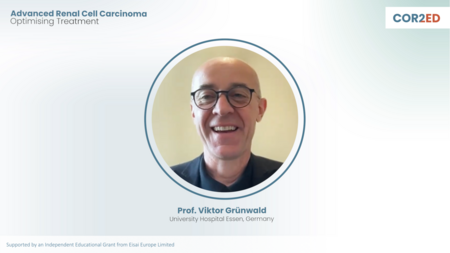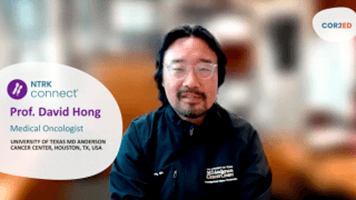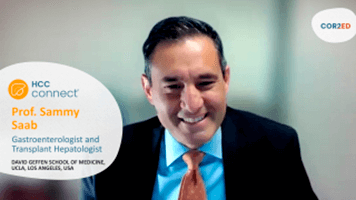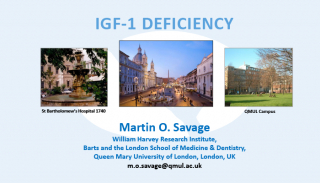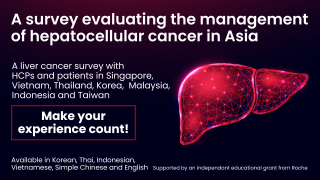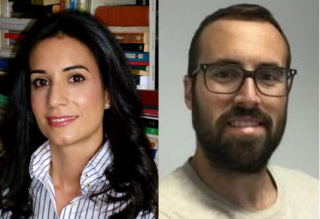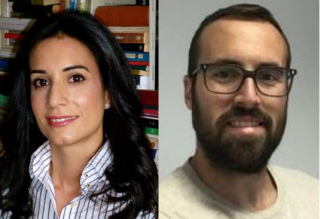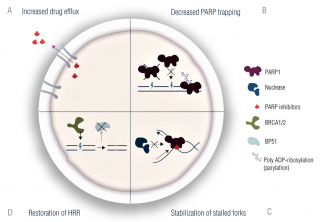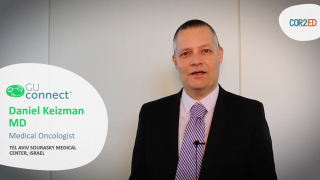
GU CONNECT Update from ESMO 2021
GU CONNECT Update from ESMO 2021
GU cancer update by Dr. Elena Castro, Hospital Universitario Virgen de la Victoria, Málaga, Spain. GU cancer update by Dr. Elena Castro, Hospital Universitario Virgen de la Victoria, Málaga, Spain.Dr. Elena Castro
Watch the video and download the slides
Dr. Elena Castro
Medical Oncologist
Hospital Universitario Virgen de la Victoria
Spain
Dr. Elena Castro has received financial support/sponsorship for research support, consultation, or speaker fees from the following companies:
|
5 min
|
Sep 2021
This programme was made for you: your opinion matters
Share your feedback in just 4 clicks and help us to continue to create the content you need.
I agree that this educational programme:
Was valuable to me:
1/4
Has improved my knowledge of this topic:
2/4
Is likely to change my clinical practice:
3/4
Was balanced and unbiased:
4/4
download resources
This programme was made for you: your opinion matters
Share your feedback in just 4 clicks and help us to continue to create the content you need.
I agree that this educational programme:
Was valuable to me:
1/4
Has improved my knowledge of this topic:
2/4
Is likely to change my clinical practice:
3/4
Was balanced and unbiased:
4/4
Hi my name is Elena Castro, I’m a medical oncologist at Hospital Universitario Virgen de la Victoria in Malaga in Spain and I’m going to comment on some abstracts presented at ESMO 2021 that I believe are very relevant for our clinical practice.
Which abstracts did you select and why?
I have selected two abstracts presented in the presidential symposium.
The first one by Dr. Attard who presented on patients with high-risk localised disease included in the STAMPEDE trial treated with abiraterone with or without enzalutamide.
The second abstract was presented by Dr. Fizazi, he presented data on the addition of abiraterone for the treatment of patients with metastatic hormone-sensitive prostate cancer, who may also have received docetaxel.
He has already presented data on radiographic progression free survival earlier at ASCO this year but here he has presented overall survival data.
What are the main conclusions?
The main conclusion of the STAMPEDE data presented here is that patients with high risk localised prostate cancer benefit from the addition of two years of treatment with abiraterone.
The conclusion of the PEACE-1 study presented at ESMO 2021 is that patients with metastatic hormone-sensitive prostate cancer, particularly those with high volume disease benefit from intensified therapy with docetaxel and abiraterone.
What are the implications of this data for clinical practice?
What we’ve learned from the data presented from STAMPEDE and PEACE-1 is that for patients with a higher risk of progression, either in the localised setting or in the metastatic hormone-sensitive setting, intensifying therapies can improve their survival.
Were there any other presentations of interest?
Dr. Armstrong has presented the final survival data of the ARCHES trial that demonstrates the benefits of treating patients with metastatic hormone-sensitive prostate cancer with enzalutamide and is in line with the results of other trials addressing the benefit of other androgen receptor inhibitors in this setting.
And also a study from the Swiss group in which the investigators assess the role of continuous daralutamide after treatment with docetaxel in patients with metastatic castration-resistant prostate cancer.
What are your take-home messages from ESMO 2021?
I believe that from now on we will be using the androgen receptor signaling inhibitors more and more in earlier stages and we have more and more evidence that suggests that sequencing these therapies is probably not the best approach for our patients but as we have seen at ESMO, there are many other drugs that are being investigated for mCRPC and we are likely to be using these new therapies with new mechanisms of actions in the advanced stages.
On behalf of GU CONNECT, thank you for listening and don’t forget to visit the COR2ED website if you would like to download the slides.
GU cancer update by Dr. Elena Castro, Hospital Universitario Virgen de la Victoria, Málaga, Spain.
GU CONNECT is an initiative of COR2ED, supported by an Independent Educational Grant from AstraZeneca, Bayer and Eisai Europe Limited.










